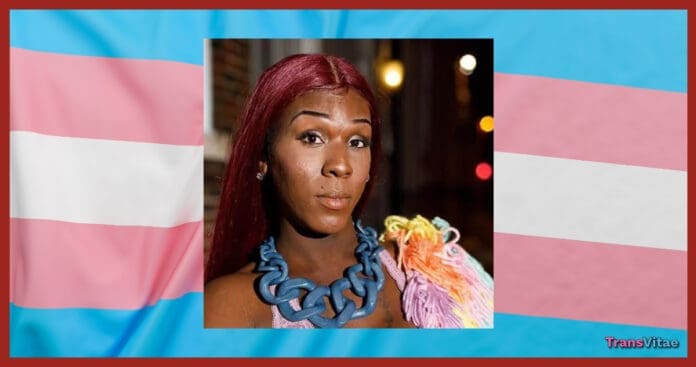Trigger Warning: This article contains graphic descriptions of violence, including details of a brutal murder and dismemberment. It discusses the death of a transgender woman and may be distressing to some readers, especially those who have experienced trauma, violence, or loss within the LGBTQ+ community. Reader discretion is strongly advised.
After nearly five years of heartbreak and two long trials, justice has finally been served in the brutal murder of Dominique “Rem’mie” Fells, a beloved Black transgender woman whose death sparked grief and outrage throughout Philadelphia’s LGBTQ+ community.
On June 9, 2025, a jury found 41-year-old Akhenaton T. Jones guilty of first-degree murder in the killing of Fells. He was also convicted of possessing an instrument intended for criminal use, a misdemeanor. The verdict follows a weeklong trial in which the jury deliberated for several hours before returning a unanimous decision. Other charges, including tampering with evidence, were dropped by prosecutors during the proceedings.
Fells, 27, was killed in June 2020 inside Jones’ residence in Powelton Village. Authorities say she was stabbed to death, dismembered with a jigsaw, and her remains were later discovered in the Schuylkill River. The brutality of the crime and the loss of a vibrant young woman devastated the community, igniting calls for justice and greater protections for transgender lives.
An earlier trial in December 2024 resulted in a mistrial after jurors were unable to agree on a verdict following five days of deliberations. Despite the legal setback, District Attorney Larry Krasner committed to retrying the case, and prosecutors moved forward with renewed resolve.
During the most recent trial, prosecutors presented extensive forensic evidence and testimony. Expert witnesses in crime-scene analysis, DNA testing, cellular data, and video surveillance provided compelling details. Among the physical evidence were a bloody jigsaw, a bloodstained mattress, and a folding knife. Green plastic wrapping material, similar to that found with Fells’ remains, was also tied to Jones.
The defense, led by Jones himself, maintained that another person committed the murder. However, no alternative suspect was ever identified or charged. Jones represented himself in both trials with the assistance of a standby attorney, Walter C. Chisholm. Despite his efforts to deflect blame, the jury ultimately found the evidence overwhelmingly pointed to his guilt.
Jones remains in custody at the Philadelphia Industrial Correctional Center and is scheduled to be sentenced on September 26, 2025, at the Criminal Justice Center in Center City.
Fells’ memory continues to live on in the hearts of those who knew her. A dancer, aspiring fashion designer, and creative soul, she had dreams of launching her own clothing line and returning to school. Her death was not only a loss to her family and friends but also to a community that still faces disproportionate violence and invisibility.
Throughout both trials, Fells’ loved ones attended court in solidarity, ensuring that her name would not be forgotten. Their strength and determination were a powerful reminder that transgender lives matter and that justice, however delayed, is possible.
As sentencing approaches, advocates continue to call for broader changes in how violence against transgender people is addressed, investigated, and prevented. Dominique Fells deserved to live, to dream, and to thrive. Her story, like too many others, must not be forgotten.


